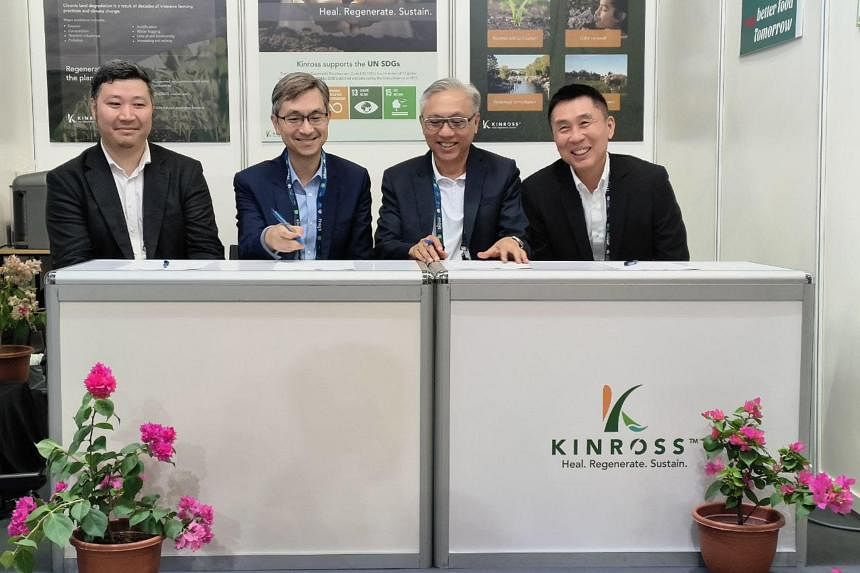SINGAPORE – A Singapore-based company will help Mongolia to restore soil conditions for plant growth, in a collaboration to improve agricultural yields and to generate carbon credits through nature-based solutions such as tree planting.
KinRoss will work with its Mongolian partner Clean BotanEco to revive degraded soil in Mongolia, where deforestation and agriculture have caused almost 80 per cent of land to become dry and infertile like deserts.
The project involves the use of a liquid microbial culture from KinRoss to compost manure and plant waste in black soil. The compost contains between 18 per cent and 23 per cent of humic acid, which retains moisture in soil.
KinRoss chief technical officer Arthur Ku explained that the liquid culture – containing over 70 species of microorganisms found in black soil in forests – is “trained” to adapt to differing conditions of temperature and soil salinity, for instance, in a process that has been patented by the company.
Mr Ku said the culture was developed in response to worldwide demand for rejuvenating farmlands.
Mr Bilguundemberel Munkhdemberel, counsellor of economic and trade affairs at the Mongolian Embassy in Singapore, said that increased desertification is making it difficult for grasslands and forests to thrive in Mongolia, which has a land size of 1.5 million sq km.
Soil rejuvenation could improve agricultural yields and food security, as well as absorb 125 million tonnes of carbon dioxide (CO2) – the main greenhouse gas – under a Mongolian government campaign to plant a billion trees by 2030.
Said the Mongolian counsellor: “We used to be heavily reliant on imports. But after Covid-19, every nation understood that food security is a strategic issue.”
He was speaking on the sidelines of the signing of a memorandum of understanding (MOU) at the Agri-Food Tech Expo Asia on Tuesday.
The collaboration will see KinRoss, Clean BotanEco, DNZ Venture Global and the Asia Carbon Institute using nature-based solutions to generate carbon credits.
DNZ Venture Global will use the standards set by the Asia Carbon Institute to register for carbon credits. Each credit represents a tonne of CO2 reduced or avoided, and can be sold to buyers looking to reduce their own emissions.
According to the Global Land Outlook 2022 by the United Nations Convention to Combat Desertification, around 25 per cent of the earth’s land is already substantially degraded and less productive, negatively impacting the well-being of at least 3.2 billion people.
Clean BotanEco chief executive Bayarjargal Batsukh said that in Mongolia, the demand for soil rejuvenation will come from some of the government agencies and 52 private companies – including mining firms – that have committed to growing over 820 million trees as part of the one-billion-tree campaign.
As at Aug 23, private and government organisations, as well as schools and the armed forces, had planted over 14 million trees.
Mr Bayarjargal said four glasshouses spanning 72 sq m each will be set up in Mongolia to showcase the results of using KinRoss’ composting liquid culture.
There are also plans to use the culture in projects during spring from April to May on a trial basis, to demonstrate to clients how land can be rejuvenated, he added. In addition, there are plans to set up a facility to produce 2,000 tonnes of compost by June 2024.
The MOU comes just months after the governments of Singapore and Mongolia agreed to collaborate on carbon credit projects in June 2023.

